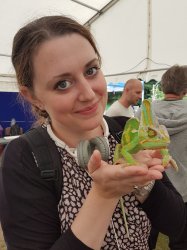

A 10 million pound Future Vaccine Manufacturing Hub led by Imperial College London has officially launched.
The Hub, which involves multiple research partners, will be led by Professor Robin Shattock from Imperial’s Department of Medicine and involves scientists across Departments of Chemical Engineering and Life Sciences. The researchers at the Hub aim to improve the response to viral outbreaks, like those caused by Zika and Ebola, by distributing vaccines quickly and more cost-effectively.
Professor Shattock said: "Through the establishment of the Future Vaccine Manufacturing Hub, we will exploit the latest advances in biotechnology to rapidly respond to emerging outbreaks. We will also help to empower countries most at risk of infection to meet their local vaccine needs.”
Nearly one in five infants across the world, or 19.5 million children, do not currently have access to basic vaccines. Almost one third of deaths among children under five could be prevented through vaccine use.
Distributing vaccines in developing countries, particularly in rural areas, are often difficult because of the costs associated with producing, transporting, and storing the vaccines using limited resources.
Scientists in developing countries are also often under-equipped to quickly and effectively respond to rapidly spreading viral outbreaks, as seen with Zika and Ebola.
The future of vaccine manufacturing
The Hub's team will focus on designing a production system that can quickly provide tens of thousands of new vaccine doses within weeks of a new threat being identified.
Vaccines and their availability can mean the difference between life and death for millions of people across the globe.
– Professor Philip Nelson
Chief Executive, EPSRC
They also aim to improve the current processes by changing how vaccines are manufactured, stored, and transported so that new and existing diseases can be prevented from emerging and spreading.
The team will develop synthetic RNA vaccines that can be made and deployed rapidly in an outbreak setting, and to engineer yeast and bacteria to generate low cost particle based vaccines that mimic components of viruses and bacteria to induce protective immunity. They will also make vaccines that can withstand extreme temperatures, avoiding the need for refrigerated distribution and storage.
The new Hub is funded by the Department of Health and the Engineering and Physical Sciences Research Council (EPSRC).
EPSRC’s Chief Executive, Professor Philip Nelson, said: “Vaccines and their availability can mean the difference between life and death for millions of people across the globe. Many of these deaths, whether they are a result of polio, diphtheria or measles, could be prevented through immunisation, and research at the Hub will look to overcome barriers currently blocking progress in this field.
“At the same time, this investment will also support the researchers as they strive to develop ways to respond rapidly and efficiently to threats such as Ebola and Zika and save many lives in the future.”
Supporters


Article text (excluding photos or graphics) © Imperial College London.
Photos and graphics subject to third party copyright used with permission or © Imperial College London.
Reporter

Caroline Brogan
Communications Division

Contact details
Tel: +44 (0)20 7594 3415
Email: caroline.brogan@imperial.ac.uk
Show all stories by this author



Leave a comment
Your comment may be published, displaying your name as you provide it, unless you request otherwise. Your contact details will never be published.